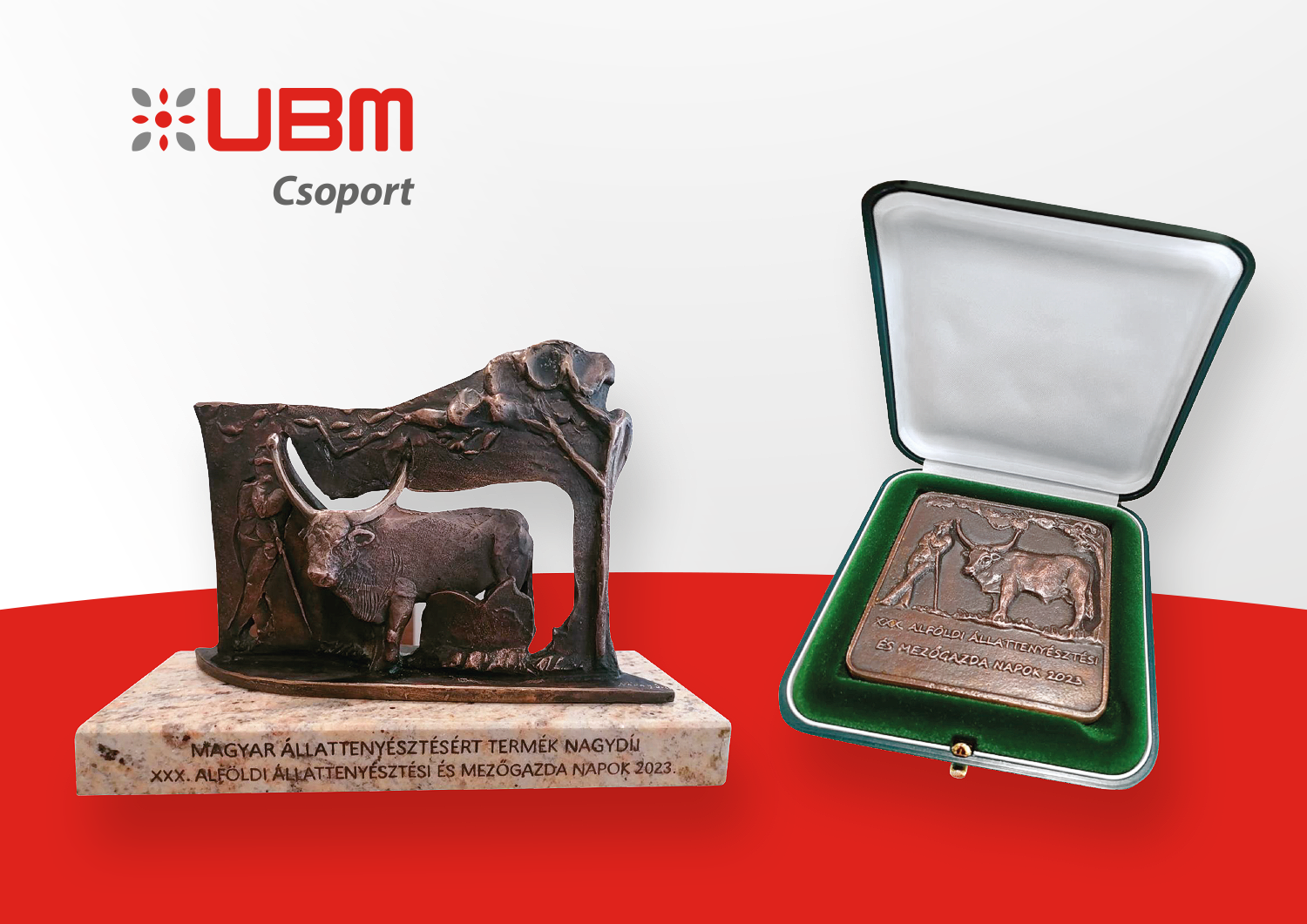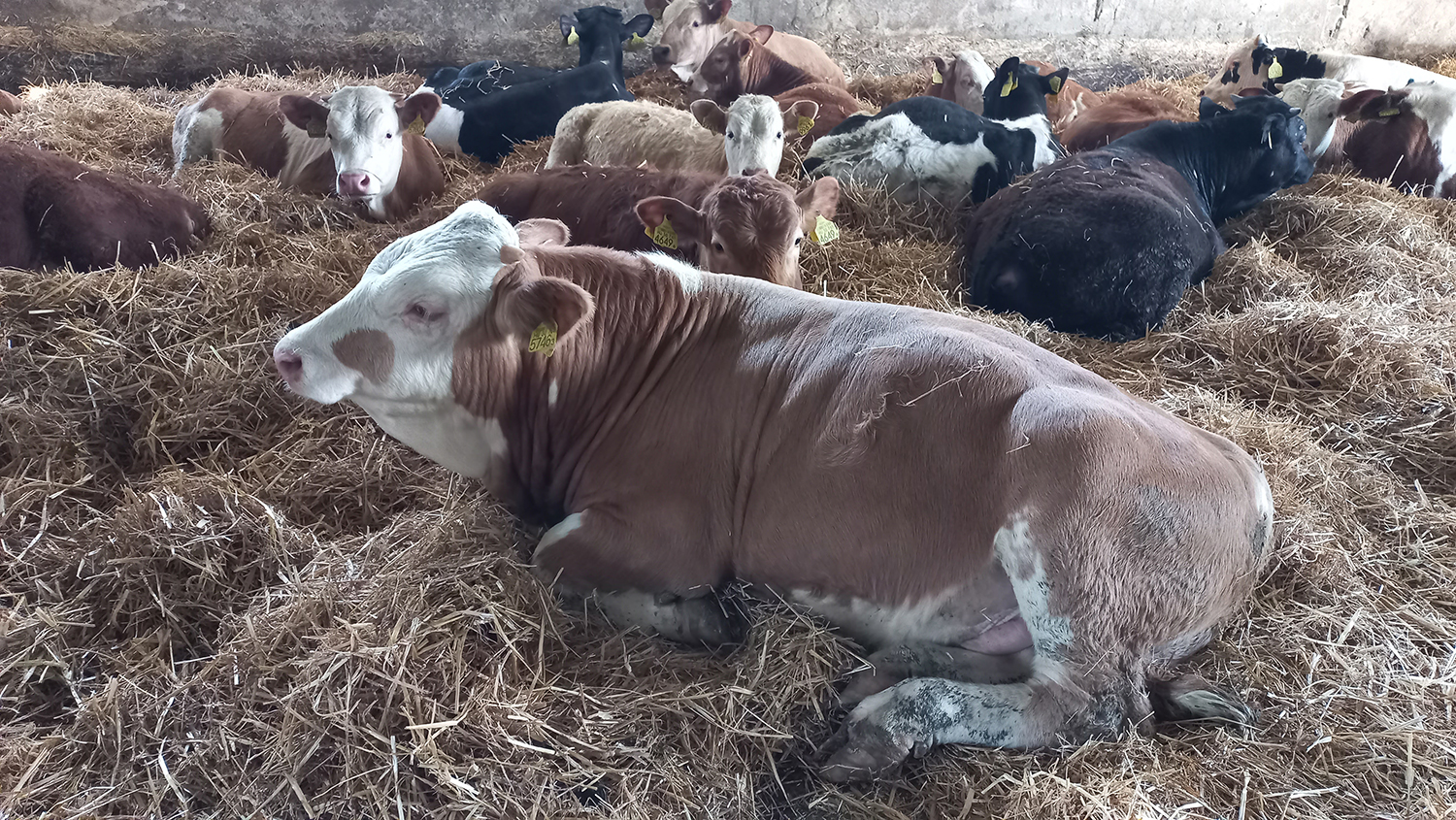László Bustyaházai: Animal welfare considerations are taken into account as much as possible in UBM’s research
Two entries were prepared by UBM Feed Zrt. (and its partners) have won prestigious acknowledgments at the 30th Great Plain Animal Breeding and Farmers’ Days. The project „New approach to diagnostics and MSB-MET measurement system for monitoring physiological changes in complementary reproductive biology in animal breeding” was awarded first place in its category, and the project „Development of palm oil-free feeding technology for dairy cattle” was awarded the Grand Prize “Product Award for Hungarian Animal Breeding 2023″. We discussed the details with László Bustyaházai, one of the owners of the UBM Group, and Henrik Baranyay, UBM’s R&D Product Manager, about the outstanding professional successes and the importance of the projects.
What is the significance of the two awards?
Henrik Baranyay: This was our first time in two categories, and we won one of the categories and the grand prize, which means that our work was judged the best in two categories* among all the entries. It is one of the best-known competitions in our sector for the representatives of the profession in Hungary.
What makes the technology novel?
László Bustyaházai: We competed in the two categories with two different technological solutions. UBM Feed Zrt. won the grand prize with an independently developed palm oil-free feeding method for dairy cattle, which has also been recognised by an international accreditation body (POFCAP). With this, we became the first feed producer in the world and the first Hungarian company to have the right to use this certification trademark.
The other award we have won is for our achievements in the field of Agricultural Informatics and Farm Technology. We integrated the basic research of the University of Szeged into daily practice. The agricultural informatics product package enables a complex non-invasive monitoring of breeding, on the basis of which the beneficial effects of omega-3 fatty acid-rich feeding can be assessed.
Henrik Baranyay: The system consists of the following three main elements:
- an instrument for measuring the contraction of smooth muscles,
- e-nose test method capable of determining the feed composition and detecting volatile components of molecules in urine that are present when the estrus stage is reached,
- feed with an increased omega-3 fatty acid profile – created from a composition of fish, algae, insect and/or vegetable oils – to enhance reproductive biology and health status.
How will the improvements make life easier for cattle and pigs in everyday life?
László Bustyaházai: We want the animals to be better off, that is our clear objective. Due to the judicious use of these two technologies, there is an improvement in reproductive-biological indicators, which can have a direct impact on animal welfare. Generally speaking, of both technologies, their use has clearly reduced the number of early embryonic deaths and, based on the results so far, may also have a positive effect on the term time. Both technologies are now available, but we have found an additional use for the equipment, which is still being researched.
How did the cooperation start, and what was the idea behind it? How long have you been working on the common project, and what were the tasks?
László Bustyaházai: There has already been significant R&D collaboration between the consortium companies and the University Knowledge Centre, based on two patented processes (P1600660, PCT/HU2017/150054, P1200741). The tests were performed with the SS-HT/DA measuring system of MSB-MET Kft. The system is capable of non-invasively mapping the visceral – in this model: stomach, small intestine, large intestine – ‘ myoelectric ‘ waves from the body surface. The rapid testing methodology and technology, based on instrumental aroma analysis (e-nose) and near-infrared spectroscopy (NIR), was developed with our consortium partner Correltech® in Herceghalom.
How long did the development take before the final result became successful?
László Bustyaházai: In one case we were able to implement our ideas in a two-year project, in the other case in a three-year project, however, the basic idea was conceived many years ago, so the preparations stretch back much further than that.
Why is palm oil-free feeding a priority, and why are alternatives needed?
László Bustyaházai: In the feeding of cattle with high milk production, it is important to add a high- energy nutrient supplement, which conventional technologies usually solve by adding various palm fats, we replaced this with a complex feeding solution. On the one hand, the use of palm oil is ecologically problematic, since the increase in the area of plantations needed to produce palm oil can only be achieved at the expense of the size of natural habitats.
Henrik Baranyay: On the other hand, it is also economically unsustainable, especially in terms of the security of supply. There are already signs that the European Union intends to tighten the conditions governing imports, which will sooner or later lead to an increase in prices. By applying our technology we are directly exempted from this impact. In addition, the positive physiological and health effects of the alternative technology we have developed are not negligible from the point of view of the animals consuming feed. Overall, the different fatty acid composition of the fat sources has a positive impact on the reproductive biological indicators and significantly improves the fatty acid profile of milk.
What are the plans for the future, either in relation to further development of projects or new directions?
László Bustyaházai: For the measurement system, we want to evaluate the physiological effects of environmental stress factors on pigs with numerical data, e.g. how they affect the microbiome. In addition, palm oil-free technology is being extended to a wider range of products and, in the long term, to the whole of UBM.
* Entries were invited in the following categories: Animal nutrition; Animal health, food processing, genetics; and Agricultural informatics, breeding technology.
If you have any questions, please do not hesitate to contact us at investors@ubm.hu.





